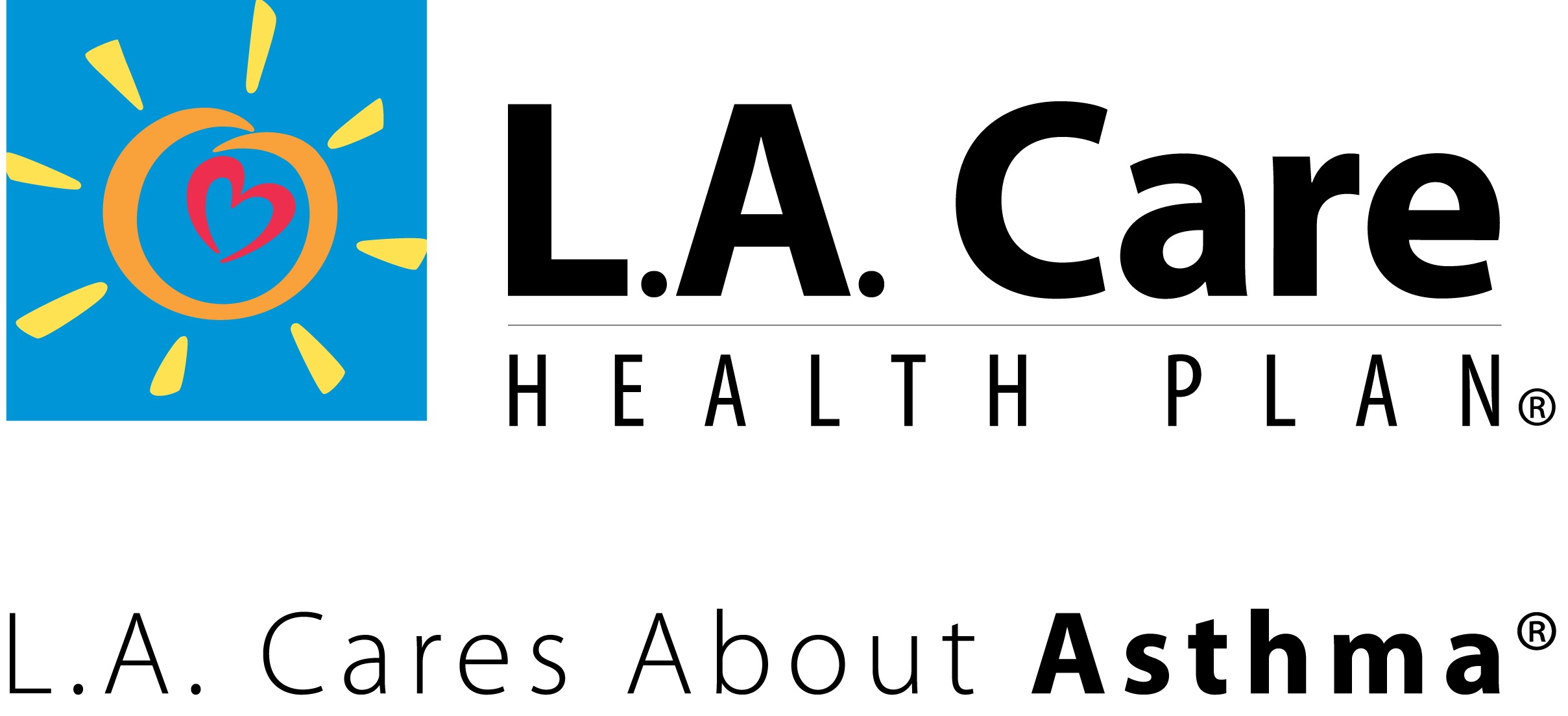LA Cares About Asthma®

L.A. Care Health Plan established L.A. Cares About Asthma, a comprehensive disease management program, in 2003. Asthma was selected as a disease management focus because of the large number of members with asthma enrolled in L.A. Care and the success of programs like these in helping patients with chronic illness improve their health status over the course of the disease. L.A. Cares About Asthma’s® goals and objectives support L.A. Care’s commitment to promote health and disease prevention in vulnerable and low-income populations living in Los Angeles County.
L.A. Cares About Asthma’s® goal is to improve health outcomes, quality of care, and disease self-management for members with asthma by ensuring efficient and appropriate utilization of resources. The program’s objectives include: improving patient self-management of asthma through education, empowerment, monitoring, and communication; providing culturally and linguistically appropriate health education materials; and improving physician performance of asthma treatment through the adoption of evidence-based clinical guidelines and coordination of care among our members’ providers. Collaboration with providers improves the knowledge and effectiveness of our provider community and improves the quality of care.
Program Overview
On a monthly basis, L.A. Cares About Asthma® identifies members with asthma. All identified members are eligible for enrollment into L.A. Cares About Asthma® and receive a welcome packet with information about the program and an asthma health education booklet. L.A. Cares About Asthma® developed the Asthma Disease Management (ADM) registry to track and monitor members diagnosed with asthma. The centralized electronic database is updated with claims, encounters, pharmacy, and eligibility information.. Members are assigned a stratification level based on the program’s algorithm. The member’s stratification determines the type and intensity of program intervention he or she receives. Members are referred monthly to L.A. Cares About Asthma® when identified with asthma through claims, encounter and pharmacy data. . To facilitate health information for continuity of care, staff from L.A. Cares About Asthma®, Utilization Management, and Case Management all have direct access to the information from the electronic databases. Monthly reports including new members, current members and stratification changes are generated from the Disease Management database system to facilitate interventions.
L.A. Cares About Asthma® nurses provide telephonic condition monitoring to high-risk asthma members to help identify possible environmental triggers, adhere to the proper asthma treatment plan and manage their condition. Asthma members are encouraged to communicate with their PCP about their health conditions, medications and treatment. The L.A. Cares About Asthma® library of materials includes a “Talk With Your Doctor About Asthma” flier. The document was developed based on research and initiatives by Department of Health & Human Services (HHS) Agency for Healthcare Research and Quality (AHRQ) and the Ad Council, encouraging Hispanics to get more involved in their health care and to talk with their doctors about their medical concerns.
L.A. Cares About Asthma® has adopted the 2007 NAEPP Expert Panel Report 3 (EPR 3) guidelines for diagnosis and management of asthma. Providers are notified annually about the L.A. Cares About Asthma® program, including how to use services, the types of interventions the members enrolled in the program receive, and how to refer members.
L.A. Cares About Asthma® nurses request that a high-risk asthma member's Primary Care Provider review the member’s medical record and appropriately classify the asthma level based on the NHLBI Asthma Guidelines. To ensure continuity of care, Provider communication is documented in the electronic database.
L.A. Cares About Asthma® provides an asthma provider toolkit that includes various environmental resources such as the EPA Home Checklist and a flier on triggers. Members’ medication profiles are evaluated to identify members who receive four or more prescriptions for relievers over the past year and note members who did not receive the recommended medication therapy (controllers) in the past year. The Providers are asked to further evaluate the member’s medication and consider an inhaled corticosteroid or an alternative controller medication.
Community Partnerships
Community engagement through member and provider input is central to L.A. Care Health Plan and L.A. Cares About AsthmaL.A. Cares About Asthma® partners with Community Based Organizations (CBOs) to expand the reach and depth of the asthma management program. L.A. Cares About Asthma® has partnered with Queenscare Health Centers to provide in-home visits for our high risk asthma members. Through the in-home visitation programs L.A. Cares About Asthma® members are referred to, Community Health Workers who provide appropriate environmental tools and materials after an in-home environmental assessment. These can include materials such as pillow cases and mattress covers. Additionally, the Community Health Worker often serves as an advocate to the member by facilitating improvements in the member’s housing conditions that impact asthma. For example, coordinating carpet removal and pest control services with the member’s landlord.
L.A. Cares About Asthma® annually evaluates the program to plan program enhancements and new initiatives based on program effectiveness, member participation, member satisfaction, and member complaints and inquiries.
L.A. Cares About Asthma® annually measures HEDIS data on the Use of Appropriate Medications for People with Asthma and analyzes the data in comparison to previous years. Reports are generated by geographic region, age of members and asthma severity level.

